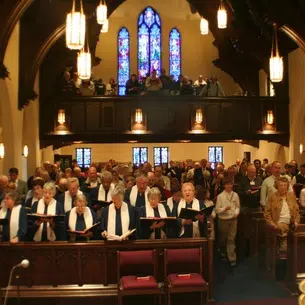By Michael Holden
LONDON (Reuters) – Britain’s Queen Elizabeth honoured those who died in World War Two on Friday, the 75th anniversary of Victory in Europe Day, and used the occasion to say she was proud of how people had responded to the coronavirus pandemic.
In a televised message, the 94-year-old monarch said those who had served during the conflict with Nazi Germany in the 1940s would admire how their descendants were coping with COVID-19 and the lockdown imposed to curb its spread.
“Today it may seem hard that we cannot mark this special anniversary as we would wish,” Elizabeth said, reflecting on the scaling down of events to mark the VE Day anniversary because of a ban on social gatherings, with a veterans’ parade cancelled and street parties scrapped.
“Instead we remember from our homes and our doorsteps. But our streets are not empty. They are filled with the love and the care that we have for each other.
“When I look at our country today and see what we are willing to do to protect and support one another, I say with pride, that we are still a nation those brave soldiers, sailors and airmen would recognise and admire.”
Britain has the highest death toll in Europe from COVID-19 at more than 30,000, a number second only to the United States.
Prime Minister Boris Johnson has likened the fight against the coronavirus to a war, and the queen’s words about the conflict of 75 years ago appeared applicable today.
“It had affected everyone and no one was immune from its impact. Whether it be the men and women called up to serve, families separated from each other or people asked to take up new roles and skills to support the war effort, all had a part to play,” the queen said.
“At the start, the outlook seemed bleak, the end distant, the outcome uncertain,” she added. “Never give up, never despair, that was the message of VE Day.”
Elizabeth, who delivered her address exactly 75 years to the hour after her father George VI gave his victory speech to the nation, was a teenager during the war and as a member of the women’s Auxiliary Territorial Service, she learned to drive military trucks.
As Britain celebrated victory on May 8, 1945, she and her late younger sister Margaret famously slipped out to join the throng outside Buckingham Palace, believed to be the only time during her 68-year reign she has been among the public unrecognised.
“I vividly remember the jubilant scenes my sister and I witnessed with our parents and Winston Churchill from the balcony of Buckingham Palace,” the queen said.
“A sense of joy in the crowds who gathered outside and across the country was profound.”
She said the greatest tribute to those who gave their lives was that countries that were enemies during the war were now friends.
(Reporting by Michael Holden; Editing by Giles Elgood)




